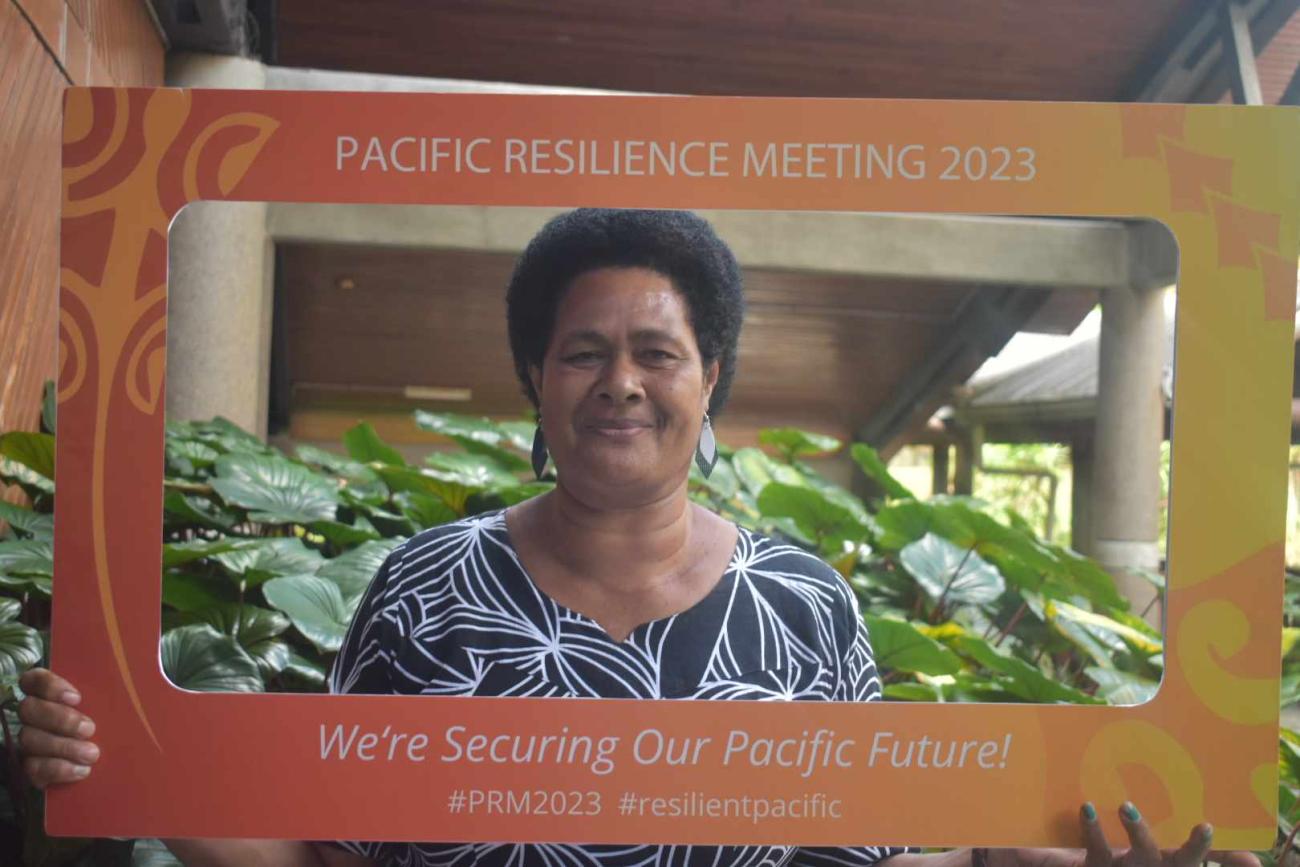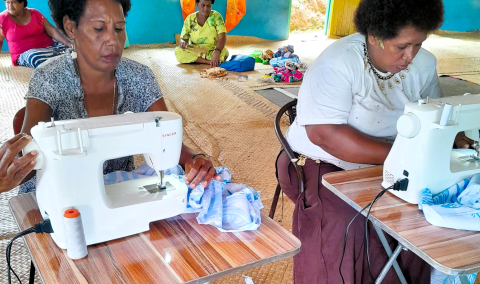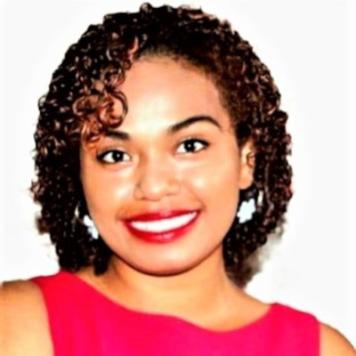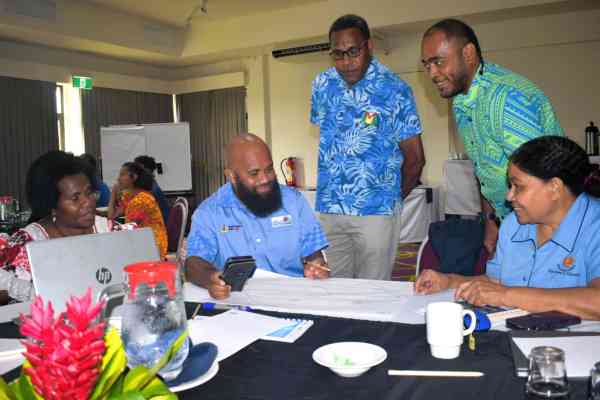(contenu disponible en anglais uniquement)
Building resilient communities: The impact of the community of practice programme
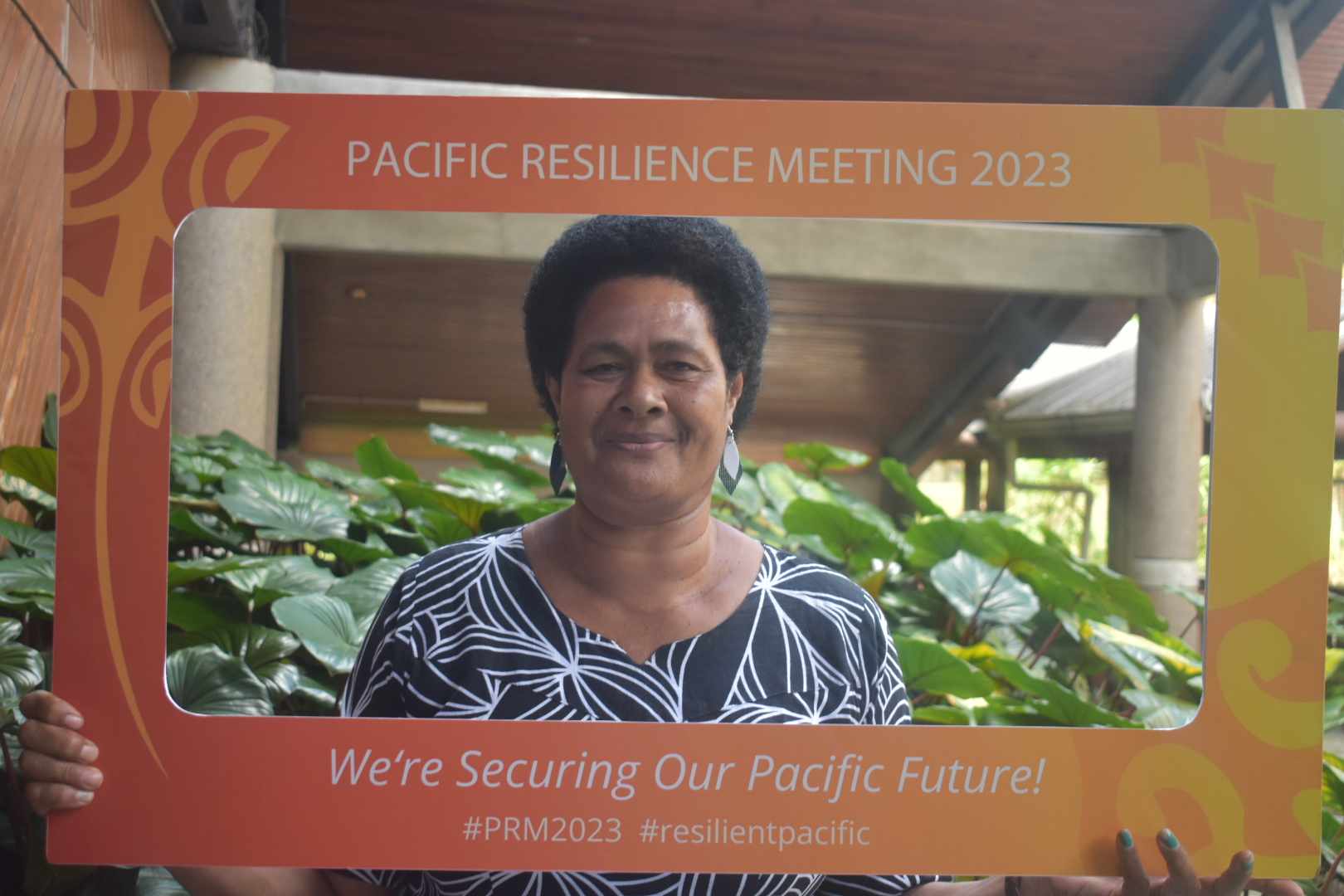
In the Pacific Islands nowadays, the impacts of climate change have become increasingly palpable, casting a shadow over the islands' ecological balance and the livelihoods of their communities. Building adaptive capacities, promoting sustainable practices, and enhancing community cohesion are essential components to defy the multifaceted consequences of climate change.
In the pursuit of fostering resilience within communities, the principle of self-reliance stands tall. Introduced and implemented by the Pacific Community’s (SPC)’s Pacific Adaptation to Climate Change and Resilient Building (PACRES) project, the principle posits that to build resilience collectively, we must first empower individuals who, in turn, fortify households and communities. The Community of Practice (COP) programme, initially introduced in seven communities in Fiji in 2022, has since become a beacon of empowerment, spreading its impact across the region.
The participating communities, spanning from Semo, Nalele, and Nabila in Nadroga to Vanuakula and Nabuna in Tavua, and settlements such as Vunakavika and Tulalevu in Sigatoka, have been pivotal in showcasing the transformative power of self-reliance.
Self-reliance was practised through the use of the 72-hour resilient kits, training on self-reliance, financial literacy and budgeting, backyard gardening and green skills, livelihood skills on tie-dye, screen-printing, fabric bleaching, and sewing. The impact of these interventions is best reflected in the success stories that have emerged.
37-year-old Mrs Nina Tubu of Nabila village has embraced the opportunity to venture into screen printing and tie-dye after participating in the workshops set up by SPC. Mrs Tubu’s business has taken off, with orders rolling in every week.
"I am thankful to PACRES for bringing this training to my village as the money I make helps cater for my family's financial needs," said Mrs Tubu.
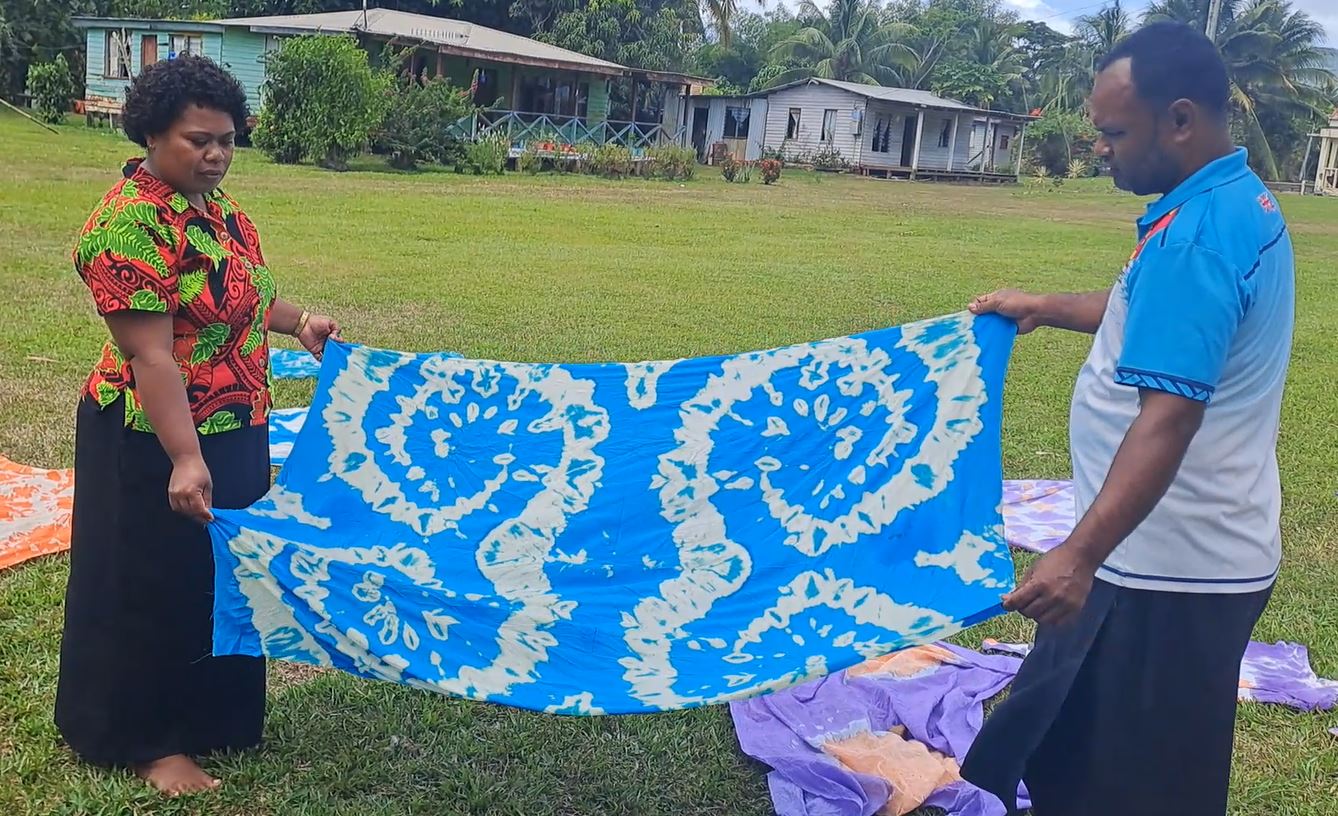
In 2023, COP expanded its reach, conducting activities that further fortified resilience in Vanuatu and Solomon Islands. Resilient kits were distributed, reaching 120 households on Pele Island, Pangpang village, Lelepa Island and 100 households in the Solomon Islands.
Additionally, 120 women from the villages of Semo, Nabila, Nalele, Vunakavika, Nabuna, Vanuakula, Qelemumumu, Nawiwi, and Wairevurevu received training on basic dressmaking. Women who showed commitment to attending the training were each awarded a sewing machine and sewing kits.
Mrs Mere Takala of Labasa said that SPC not only brought them a life-long skill that could help raise their standard of living but also the equipment and assets to make the dream of self-sufficiency a reality.
“Knowledge is priceless, and we will work to become independent and venture into start-off businesses,” she said.
Additionally, Vetiver System (VS) expert Mr Robinson Vanoh from Papua New Guinea educated 7 communities in Tavua and 2 communities in Nadroga on the vetiver grass and its application. The programme engaged villagers in mitigating the impacts of flooding by planting vetiver grass along riverbanks and shorelines.
MsElenoa Naisau of Tavualevu village stated that her village was often flooded during heavy rain, and having some form of effective measure to try to reduce flooding is a step towards resilience.
Through COP, community members have transformed into agents of change. Influential COP leaders, Ms Remivani Baravi of Semo Village and Mr Ratu Ovini Bokini of Tavualevu, spoke passionately about the programme during the Pacific Resilience Meeting in October 2023. Hundreds of participants from across the region got to hear first-hand the experience of our villagers in Fiji and how they overcome challenges through resilience and self-reliance.
Consequently, a prime example of effecting change has been portrayed by Ratu Bokini, the district representative for Tavua. Through COP interventions in Tavua, Ratu Bokini committed his own time and resources to teach the principles of self-reliance to six communities in Tavua. These included the villages of Tavualevu, Vatutavui, Nadolodolo, Waikona, Korovou and Nadelei.
To cap off COP, the PACRES project conducted an exit strategy workshop in January 2024. The workshop brought together village leaders and government representatives, who discussed sustainable practices for continuing the programme in their districts.
The case of Fiji serves as a powerful example, where the need for self-sufficiency is not merely a matter of environmental conservation but a lifeline for communities facing escalating challenges. As nations grapple with the escalating impacts of a changing climate, the resilience cultivated within communities becomes a beacon of hope. The commitment to sustainable practices, local empowerment, and adaptive strategies fortifies societies against environmental adversities and fosters a sense of unity and shared responsibility.
